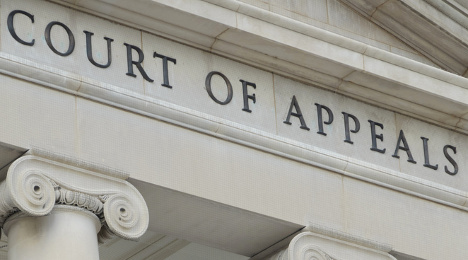2 more groups challenge FCC actions over TCPA

By subscribing, you agree to receive communications from Auto Remarketing and our partners in accordance with our Privacy Policy. We may share your information with select partners and sponsors who may contact you about their products and services. You may unsubscribe at any time.
WASHINGTON, D.C. –
Joining the journey first started by ACA International, the U.S. Chamber of Commerce as well as the Consumer Bankers Association, recently filed petitions for review in the U.S. Court of Appeals for the D.C. Circuit, challenging several aspects of a declaratory ruling and order issued by the Federal Communications Commission this summer that officials believe will accelerate “abusive” class action lawsuits against businesses under the Telephone Consumer Protection Act (TCPA).
In its declaratory ruling and order, the Chamber recapped that the FCC vastly expanded the scope of the TCPA in several ways.
First, as explained in the Chamber's petition for review, the FCC adopted a broad definition of the types of equipment covered by the TCPA, going so far as to suggest that even mass-market smartphones could be covered "auto-dialers." The breadth of this ruling is highlighted by the fact that the FCC had to rely on the antiquated rotary phone as an example of equipment not covered by the law.
Second, the FCC concluded that the TCPA applies to any call made to a current subscriber or user of a reassigned wireless number, rather than the intended recipient.
Third, the FCC arbitrarily allowed just one call before imposing strict liability under the TCPA for calls that, without the caller's knowledge, have been placed to a reassigned number, despite the fact that there is no practical way to verify the continued accuracy of numbers before a call is placed.
Fourth, the FCC significantly limited the TCPA's consent defense, which is an essential statutory tool for warding off liability under the TCPA.
Subscribe to Auto Remarketing to stay informed and stay ahead.
By subscribing, you agree to receive communications from Auto Remarketing and our partners in accordance with our Privacy Policy. We may share your information with select partners and sponsors who may contact you about their products and services. You may unsubscribe at any time.
Because the TCPA is increasingly the basis for meritless class actions that seek crippling damages of up to $1,500 per call against businesses, of all sizes and types, officials insisted the FCC’s actions are particularly harmful for the Chamber’s members.
The U.S. Chamber is represented by the U.S. Chamber Litigation Center and the law firm of Gibson Dunn & Crutcher.
“Although we support the rights of consumers as it relates to telephone communications, the FCC overstepped its authority by creating new restrictions on legitimate, good faith communications from businesses to their customers who previously gave their permission to be contacted," said Harold Kim, executive vice president of the U.S. Chamber Institute for Legal Reform (ILR).
“These arbitrary new limits will fuel abusive class action lawsuits against businesses,” Kim added.
A copy of the U.S. Chamber's petition for review is available here.
The Consumer Bankers Association took a similar stance in its position, which is available here.


